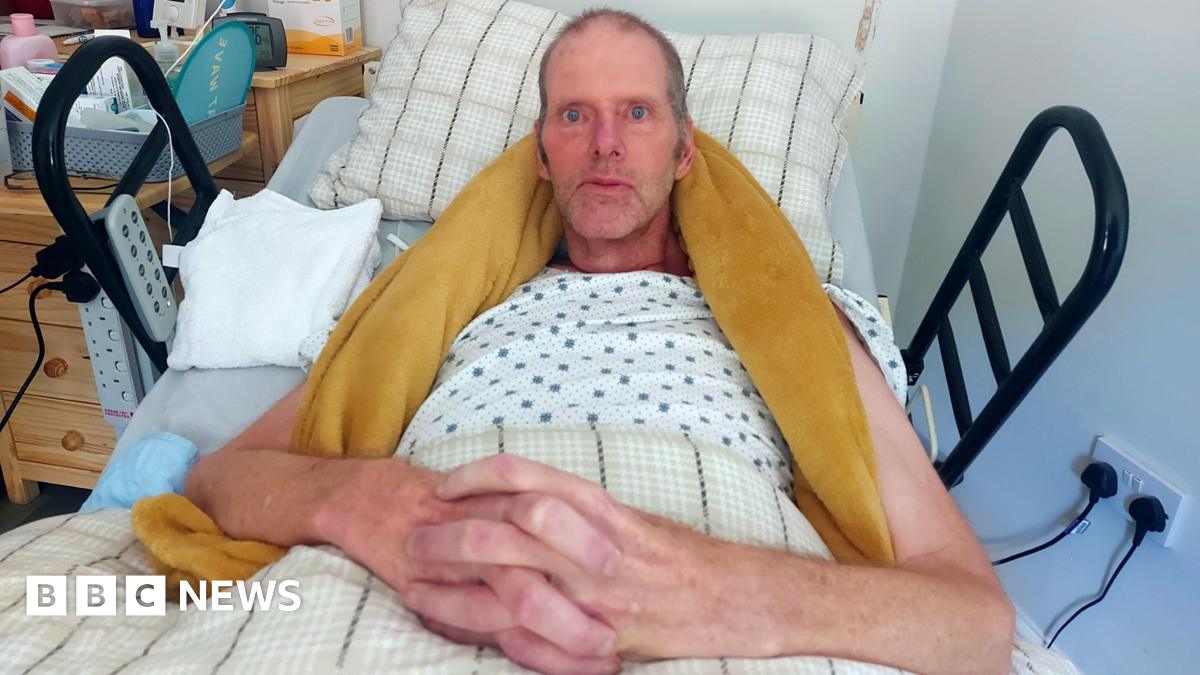Tim has a separate, hereditary kidney condition, called polycystic kidney disease. His twin Andy, their father Alan and sister Sue were also born with the condition.
Twenty years ago, Tim had a kidney transplant from his older brother, Richard. Tim’s twice-daily tablets are supposed to stop the kidney from failing.
Without them Tim knows he has months, if not weeks, left to live. He feels he has little choice but to stop taking the tablets.
Sue, a retired children’s social worker, says she is devastated by Tim’s decision.
“He doesn’t need to be lying here dying. He’s got so much more to give,” she says. “And I just feel that he’s been completely abandoned.”
She spends nearly every day caring for him and has made endless calls to try to get him the support he needs.
In February, Sue made urgent calls to Tim’s GP, local mental health services and adult social services because he was so low. Again, she says she was passed from pillar to post, and that getting help was a fight. There was “no joined-up thinking”, she says.
Six months after stopping the tablets, Tim says he does not regret it.
But pressed on what would make a difference, he says: “If I could be hoisted out [of bed] and sat up to have dinner, if I could be wheeled out into the garden just to get a change of scenery, that could help a lot.”
A friend suggested Sue should contact the local hospice. It has now become the central point of advice, support and information that Tim desperately needed two years ago. It manages his pain medication and has helped him get NHS funding for four care visits a day. It also arranged for a psychologist to check he had capacity to make his end-of-life decision.
He says he’s been asked that question by clinicians several times, but no-one has ever asked what can be done to make him rethink.
The tragic irony that it took the move to end-of-life care to get them more joined-up help is not lost on Sue, but she says it is still not enough to provide the level of support he really needs.
“I feel absolutely heartbroken by the situation,” she says. “I think I’ve gone beyond anger. I just can’t believe that the UK would allow this to happen.
